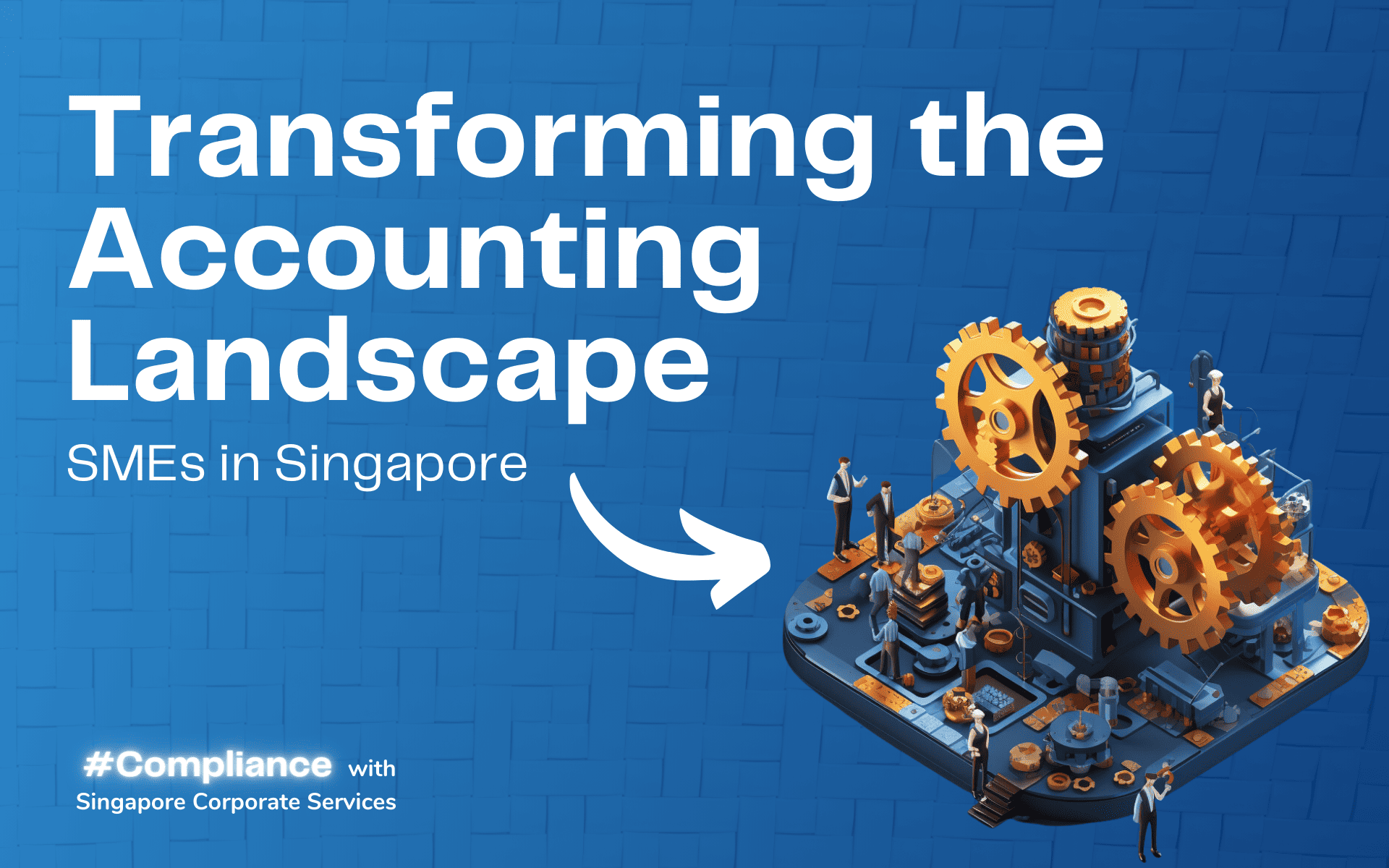The accounting industry in Singapore has witnessed remarkable changes in response to a dynamic business landscape, technological advancements, and shifting client expectations. These transformations are particularly pertinent to Small and Medium-sized Enterprises (SMEs) who largely rely on accounting firms to support their operational requirements.
The accounting industry in Singapore is undergoing a transformative phase, driven by technological advancements and changing client expectations. For SMEs, these shifts hold significant implications. Your company can benefit from improved efficiency, reduced accounting costs, and access to specialised services, thanks to the adoption of advanced accounting technologies. You can now easily navigate compliance requirements and enhance your financial visibility through real-time data.
Technological Advancements and Benefits for SMEs
The accounting industry is in the midst of a transformation driven by technology, shifting client needs, and heightened competition. SMEs, in particular, stand to gain significantly from these changes. They can enjoy enhanced efficiency, reduced accounting costs, and access to specialised services, all thanks to the adoption of advanced accounting technologies.
Firms are increasingly adopting digital tools to boost efficiency and reduce manual tasks. This includes cloud-based accounting software and the integration of AI and ML, offering data analytics for cost-saving insights. SMEs are also capitalising on these technologies, benefiting from data-driven insights provided by accounting firms. The result is enhanced efficiency, exemplified by real-time reporting capabilities in widely-adopted solutions like Xero. Xero uses advanced data analysis and AI to process financial data, offering real-time insights that assist businesses in informed decision-making. As such, data-driven insights are generated through the application of advanced data analysis techniques and algorithms.
This enables SMEs to efficiently meet compliance requirements, gain real-time financial insights, remain competitive, attract investors, and tap into the specialised expertise offered by accounting firms. Embracing these modern industry practices is crucial for SMEs to thrive and grow in Singapore’s evolving business landscape.
Government Initiatives and a Robust Industry
Singapore’s government has been at the forefront of initiatives aimed at enhancing the accountancy sector. Notably, the Accountancy Roadmap, launched in 2018, has played a pivotal role in charting the sector’s growth. This roadmap focuses on key pillars, including productivity, reskilling and upskilling, innovation, and internationalisation. The objective is to make Singapore a global accountancy hub, and these initiatives have laid the foundation for the industry’s transformation.
These government-led programs can lead to a more robust and competitive accountancy industry. This, in turn, means SMEs can access higher quality accounting services, innovative solutions, and more skilled professionals to support their operations.
Diversification of Services
The industry is diversifying its services to meet the evolving needs of SMEs and project managers. With 78% of clients in Singapore expressing their willingness to pay more for firms that offer a broader spectrum of services, the focus has shifted beyond traditional accounting and auditing. Services now encompass business consulting, financial planning, risk management, and more.
This means that SMEs can now access comprehensive services, including business consulting and financial planning, from their accounting partners. For example, Singapore Corporate Services (SCS) offers a comprehensive range of financial and advisory services for its clients. The diversification of services empowers SMEs with a one-stop solution for their financial and advisory requirements, enhancing their operational efficiency and financial well-being.
Collaborations and Integrated Solutions
Accounting firms in Singapore are fostering collaborations with other professional services providers. This approach allows for the creation of integrated solutions that cater to diverse client needs. Such partnerships not only broaden service offerings but also provide clients with one-stop-shop solutions.
Such collaborations creates opportunities for SMEs to benefit from integrated solutions. For SMEs, this is particularly advantageous as they can receive a broader spectrum of services through a single, well-coordinated source, simplifying their business operations.
The Appeal of Mid-Sized Firms
The desire to achieve mid-sized firm status is prevalent among accounting firms in Singapore. According to a 2021 survey by the Singapore Accountancy Commission (SAC), 67% of firms aspire to reach this status. Mid-sized firms offer the agility of smaller firms while providing a comprehensive range of services. This positions them as attractive partners for SMEs. For SMEs, this is significant because mid-sized accounting firms can offer more comprehensive services, cater to their specific requirements, and provide personalised attention. The flexibility and service range of mid-sized firms makes them highly suitable partners for SMEs.
Conclusion
The accounting industry in Singapore is evolving to meet the changing needs of SMEs and project managers. These transformations offer substantial benefits, including streamlined operations, technological innovations, diversified services, and integrated solutions.
For SMEs looking to leverage these industry advancements, engaging a reliable partner is essential. Singapore Corporate Services (SCS) is ideally positioned to provide a comprehensive suite of services that align with the evolving landscape of the accounting industry. By partnering with SCS, businesses can access the full spectrum of modernised accounting and financial services to meet their operational needs effectively. Seize the opportunity to gain from these industry changes—get in touch with us.
Corporate Income Tax Malaysia: Rates, Filing, and Strategic Compliance
Understand Malaysia’s corporate income tax system. Learn current tax rates, SME tiers, filing deadlines, LHDN requirements, penalties, and more.
Understanding the Core Types of Audits and Their Roles in Accounting in Singapore
Learn the key types of audits in Singapore to build trust and stay compliant. Examples are statutory, internal, GST, and forensic.
Tax Return In Singapore: A Friendly 2025 Guide
Want to be a responsible business owner? Read this guide to tax return in Singapore to help understand tax filing and play your part.




